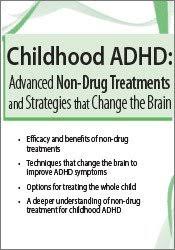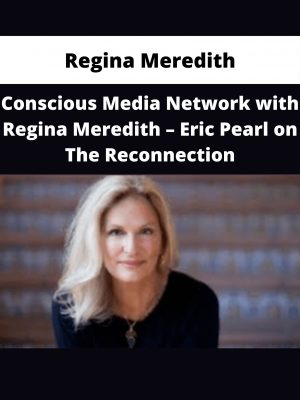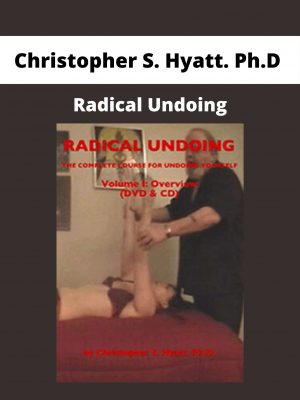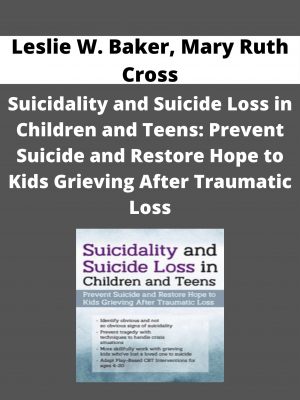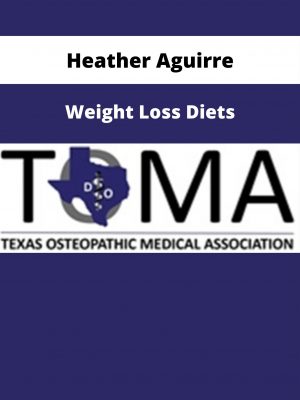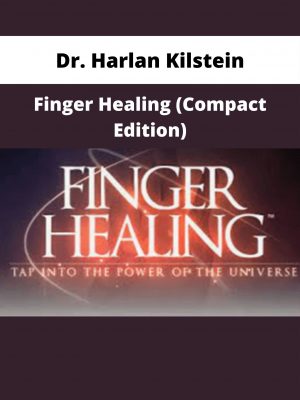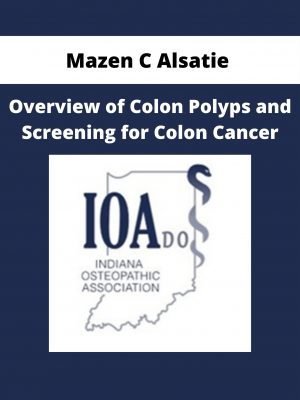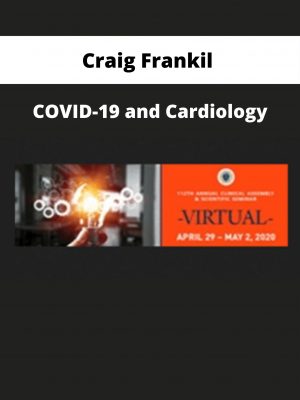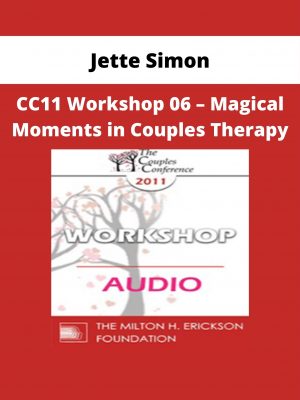Debra Burdick – Childhood ADHD, Advanced Non-Drug Treatments & Strategies that Change the Brain
$200 Original price was: $200.$75Current price is: $75.
Shopping Instructions:
- DISCOUNT 15% : SHOP15
- Product Delivery: Within 1 – 12 hours after purchase.
Although medication has been the traditional first line of treatment for childhood ADHD, there are many kids and teens for whom medication is not the best option.
Debra Burdick – Childhood ADHD, Advanced Non-Drug Treatments & Strategies that Change the Brain
- Efficacy and benefits of non-drug treatments
- Techniques that change the brain to improve ADHD symptoms
- Options for treating the whole child
- A deeper understanding of non-drug treatment for childhood ADHD
Although medication has been the traditional first line of treatment for childhood ADHD, there are many kids and teens for whom medication is not the best option. You will learn when to consider and how to incorporate non-drug options into your treatment plan. The more you understand about the non-drug treatments for ADHD the more comprehensive, individualized and effective your treatment will be.
Learn about cutting edge non-drug treatments for ADHD as well as the efficacy and neurobiology of each treatment. Finally understand what neurofeedback is, how it works, and why the American Academy of Pediatrics added biofeedback/neurofeedback to its list of best treatment modalities for ADHD. You will learn and practice brain-based mindfulness skills that help kids and teens slow down, calm down, concentrate, and feel better about themselves. Master skills for helping kids, teens, and their parents make ADHD-specific changes in their diet, sleep, behavior, organization, exercise, and environment that support their success. Options for addressing low self-esteem, depression, and anxiety that so often accompany ADHD will also be discussed.
Debra Burdick, LCSWR, BCN, a psychotherapist, neurotherapist, author and ADHD and mindfulness expert will show you how to put all the pieces together and give you new skills that will improve your treatment outcomes for working with clients with ADHD. The recording will include case examples, experiential learning, tools for tracking treatment progress and a wealth of worksheets and resource materials to use with your clients.
- Compare and contrast the benefits and drawbacks of non-drug treatments for ADHD and when to consider their use
- Outline the symptoms and Neurobiology of ADHD
- Describe what Neurofeedback is and how it changes the brain and treats ADHD
- Incorporate mindfulness skills that change the brain and reduce ADHD symptoms
- Discuss non-drug options for improving self-esteem, depression, and anxiety
- Define strategies that help the whole child thrive by addressing movement, sleep, nutrition, exercise, behavior management, school, and organizational skills
Would you like to receive Debra Burdick – Childhood ADHD, Advanced Non-Drug Treatments & Strategies that Change the Brain ?
Strategies to Make an Accurate Diagnosis
- Review of the DSM-5® Criteria
- Tools for Diagnosis: Structured Interview, Symptom Checklists, TOVA, IVA, QEEG, Neuropsych Testing
- Recognize Contributors to (or mimics of )Symptoms of ADHD
- Neurobiology of ADHD
- Types of ADHD
- Co-morbid Disorders
Cutting Edge Non-Drug Treatment Options
- Psychotherapy and/or Coaching
- What Works and What Doesn’t for ADHD
- Self-esteem, Depression, Anxiety
- Neurofeedback
- Efficacy for Neurofeedback
- Treatment Process
- Case Examples
- Sample Systems
- Mindfulness for Kids and Teens with ADHD
- Research on Effectiveness for ADHD
- Neurobiology
- Skills to teach your clients for:
- Concentration, Hyperactivity, Self-esteem, Movement, Depression, Anxiety
- Case Examples
- Review of Complimentary Therapies
- Interactive Metronome®
- Sensory Integration Therapy
- Nutrition for the ADHD Brain
- Sugar
- Food additives
- Food Allergies
- Common Deficiencies
- Supplements
- Organic?
- The Role of Exercise and Movement on the Brain and ADHD
- Sleep
- The Impact of ADHD
- Strategies for Regulating
- Strategies to Improve Behavior and Relationships
- Behavior Management
- Social Skills
- Organizational Skills
- Site of Performance Skills and Systems
- Systems for Organizing Time, Space and Activity
- Environment
- Screen Time
- Toxins
- Strategies for Success at School
- PPT, IEP, Accommodations
- Study Strategies
- Track Treatment Progress
Course Features
-
Lectures
0 -
Quizzes
0 -
Duration
Lifetime access -
Skill level
All levels -
Language
English -
Students
0 -
Assessments
Yes
Related products
HEALTH & MEDICAL
Regina Meredith – Conscious Media Network with Regina Meredith – Eric Pearl on The Reconnection
HEALTH & MEDICAL
HEALTH & MEDICAL
HEALTH & MEDICAL
HEALTH & MEDICAL
HEALTH & MEDICAL
CC11 Workshop 06 – Magical Moments in Couples Therapy – Jette Simon



